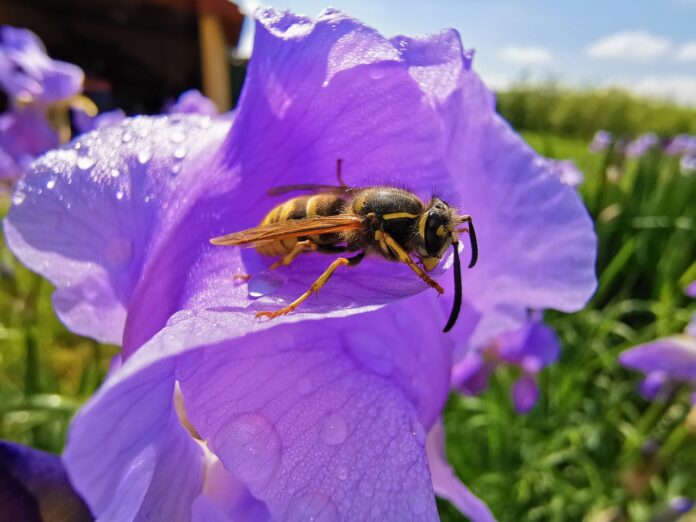Despite their modest size, wasps deliver very painful stings. However, they don’t intentionally attack humans, but if they are accidentally disturbed, they can cause quite a lot of trouble. These insects are primarily interesting from a biological perspective because their species are highly diverse, and many of them differ significantly from one another.
Facts About Wasps:
- Some species of wasps lead a social life, forming hive-like colonies, while others are solitary.
- Hornets are technically a type of wasp.
- The number of wasp species is enormous, with over 17,000 species identified worldwide.
- Most wasps are colored with black and yellow, or black and white stripes and spots.
- When defending against external threats, unlike bees, wasps use not only their stingers but also their mandibles to bite the threat.
- Unlike bees, wasps do not produce honey.
- A single wasp colony can house up to several thousand individuals.
- Unlike a bee’s stinger, a wasp’s stinger does not have barbs, so it does not injure itself when stinging and can sting multiple times.
- Wasps, like bees, respond to the smell of venom and may join in an attack.
- Some species of wasps lay their eggs in the nests of other wasps or bees.
- The larvae of common wasps are predatory, feeding on other small insects, while adult wasps prefer to eat nectar. However, some species remain predatory even as adults.
- Wasps are abundant on all continents except Antarctica.
- Wasp larvae live for about 20 days. They spend roughly the same amount of time in the pupal stage before emerging as adults.
- In temperate regions like central Russia, by autumn, entire colonies of social wasps usually die off, with only the fertilized queen surviving to start a new colony the following spring.
- Thanks to their slender “waists,” these insects can bend their bodies almost in half and sting from nearly any angle.
- In hot weather, wasps become noticeably more aggressive, so it’s wise to be cautious around them.
- Dragonflies often hunt wasps when the opportunity arises.
- Wasp venom can cause anaphylactic shock, and in large doses, it is deadly on its own.
- A queen wasp can lay more than 2,000 eggs at a time.
- Some species of wasps live parasitically, laying their eggs directly into the bodies of other insects.
